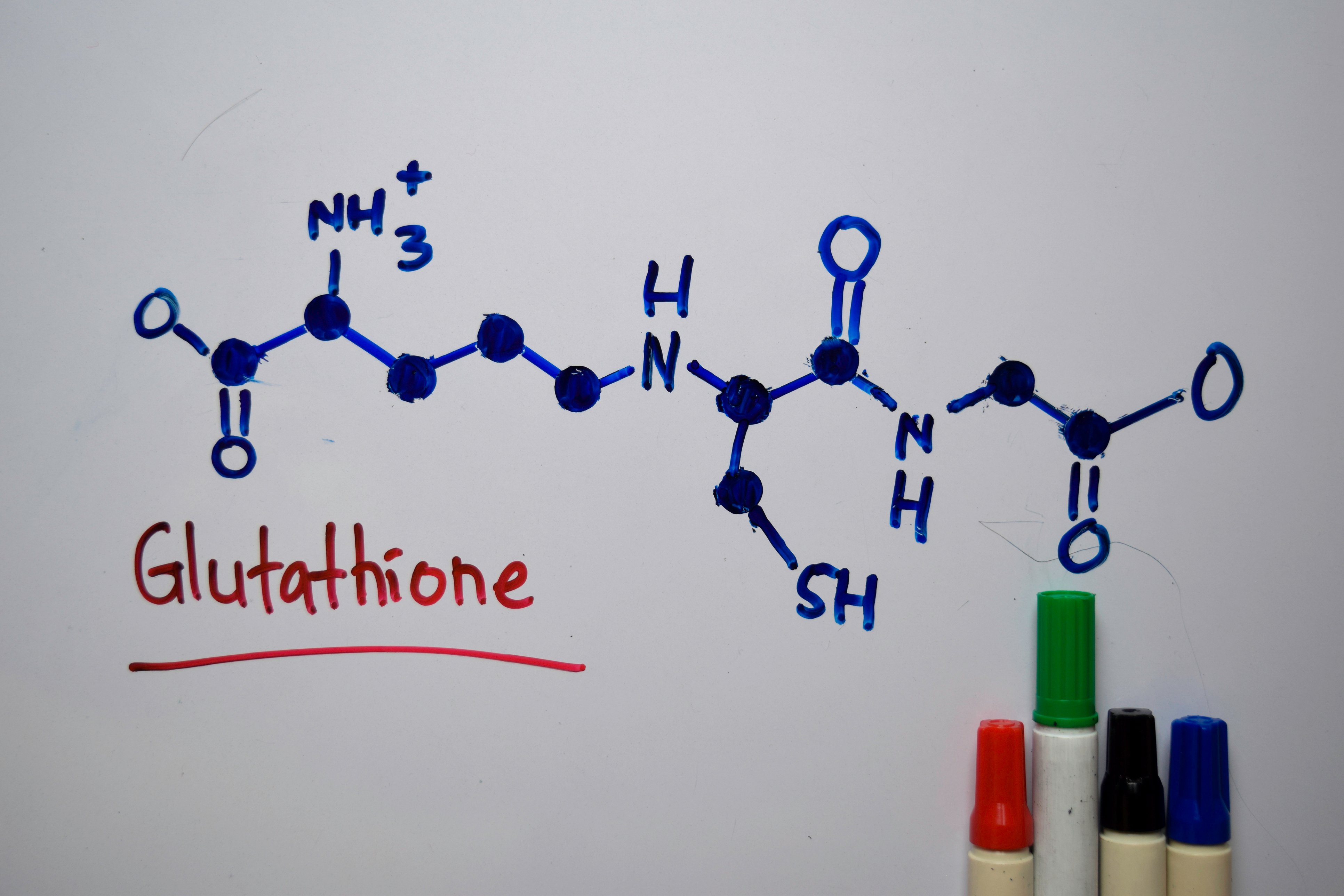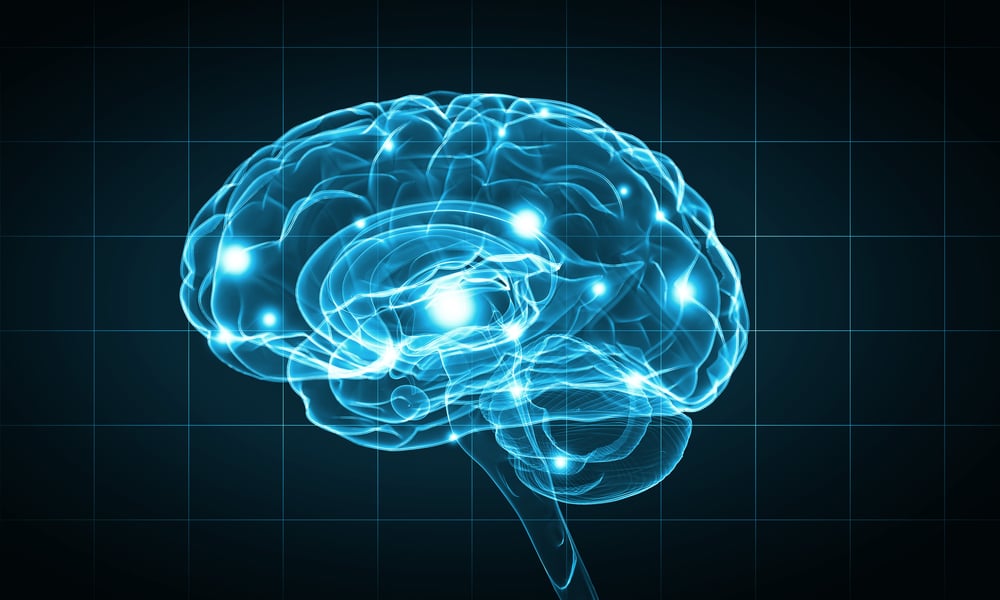NAC benefits are more wide-reaching than previously thought.
NAC is a perfect example of a compound in that you think you know what it does, and you dive deeper and realize the effects are more extensive than you have imagined.
NAC is most widely known for supporting glutathione levels in the body. The benefits of glutathione are far-reaching and many.
In the body, NAC supports L-cysteine levels – an amino acid building block that is the limiting factor for the production and maintenance of glutathione levels.
Below I explore the benefits of N-Acetylcysteine (NAC) – discussing glutathione support, but also other less appreciated effects of this unique and powerful nutritional compound.
When I use NAC, I turn to NAC 500mg by Doctor Alex Supplements.
Benefits of NAC
Mucus Thinning:
- NAC is regarded for its “mucolytic” or mucus-thinning properties.
- It’s been used for chronic obstructive pulmonary disease (COPD) support, influenza, and pulmonary fibrosis (1; 2). A meta-analysis looked at the treatment of patients with chronic bronchitis and COPD patients with NAC at doses below or above 600mg per day. The authors found those with supplementation were associated with fewer episodes of worsening, and doses ranged from 600mg daily to over 1200mg especially if an airway has verified obstruction (3)
- May support acute respiratory distress syndrome (SARS) which can be related to viral infection, as well as bronchitis (4).
Biofilm Disruption:
- Bacteria can produce mucus-like material called biofilm that protects and nourishes the microbial community. Biofilm can also “hide” unwanted bacteria from immune recognition. NAC has been shown to prevent biofilm formation and also help break down existing biofilm with an excellent safety record (5).
- When the microbial biofilm is disrupted, it opens the door for other antimicrobial compounds (internal and external) to work more effectively (6).
Glutathione Support:

NAC supports the supply of L-cysteine which is the most limiting factor in glutathione production – it’s the raw material that runs out first when your body calls for more glutathione (7; 8).
- Glutathione supports potent and foundational antioxidant support in the body (9). Antioxidant support supports mitochondrial health, vascular health, and the “mopping up” of free radicals produced during inflammation (10)
- Useful for acetaminophen toxicity (brand names such as Tylenol), and might be a promising support for non-medication induced liver failure (11)
- A detoxification aid after consuming the contrast solution used for some imaging procedures (12)
- May support body defenses against pesticide exposure – chemicals we’re exposed to daily (13)
NAC and Anti-Inflammatory Support:
- Anti-inflammatory in nature as glutathione acts as an antioxidant and supports regulation of immune cell messengers and immune responses (14)
- A major source of inflammation of the body is known as endotoxemia – the movement of toxins from the gut into the bloodstream – via a “leaky gut”.The endotoxins are known as lipopolysaccharides (LPS) and they derive from bacteria in the gut. When released and absorbed through a leaky gut, endotoxins invite the release of pro-inflammatory cell messengers throughout the body including the brain.“Sepsis” is a term more widely known – and is a severe end-stage of endotoxemia. In sepsis, the body is overwhelmed by these inflammatory compounds and cell messengers – creating a “cytokine storm” that causes severe damage to organs and tissues – often resulting in death.
One does not need to be in “septic shock” to benefit from a reduction of endotoxemia – low-level endotoxemia is a major contributor to every known chronic disease process in the body.NAC treatment may provide benefits against endotoxemia. In an animal model, NAC treatment successfully reduced the release of inflammatory cell messengers, minimized the effect of endotoxins on blood pressure, and was associated with a decrease in markers of inflammation and organ injury (15). Glutathione, which is supported by NAC, also helps neutralize oxidative compounds produced by inflammatory cell messengers, infection, and other toxic agents and promotes immune balance.
NAC Benefits for Vascular Relaxation:
NAC may support nitric oxide-related systems during stress, infection, and toxicity.
- Nitric oxide supports the relaxation of blood vessels and lowers blood pressure – improving blood flow to tissues and the subsequent delivery of nutrients, cell messengers, and immune cells – as well as the removal of cell waste and debris.
- As the brain demands some 20% of total blood supply – there is potential for NAC’s benefit for psychiatric conditions to be related, in part, to its modulation of vessel relaxation. One of my core tenets of brain support is to optimize blood flow – particularly to the frontal lobe of the brain where our best thinking and reasoning functions reside.
- Studies have examined a number of roles for NAC with mild brain trauma, brain hemorrhage, and brain ischemia (blocked blood flow) (16).
NAC for Skin Issues and Itching Disorders:
- NAC has been used for various skin disorders such as dermatitis, itching disorders, sun damage, and hair loss (17).
- Obsessive behaviors such as nail-biting (18) and “skin-picking disorder” (19) may also respond favorably to NAC supplementation.
- A clinical trial demonstrated that 47% of clients with “skin-picking disorder” saw much or very much improved when compared to placebo when using NAC at 1200-1300mg/day.
- A glutamate mechanism?
The authors concluded that the glutamate system (glutamate is an excitatory neurotransmitter) may prove a beneficial target in similar compulsive behavior disorders (20).
It’s interesting because MSG (monosodium glutamate) is used to boost appetite and as a flavor enhancer – and some individuals are prone to “overexcitement” symptoms including overeating or experiencing of a headache when MSG is added to foods. Textbooks have referred to this experience as “Chinese restaurant syndrome”.Glutamate residues are high in savory foods and can generally be non-harmful – but adding them in unnatural quantities such as MSG is not preferred and can make the body “anxious” and at the very least, want to eat more or possibly engage in OCD-like behavior.Balancing glutamate excess is one means of helping to support craving control – for food, drugs, or as the NAC research suggests, the urge to bite your nails or itch an area of your body.
- Glycine is another precursor to glutathione production – and is responsible for a detoxification process known as glycine conjugation. It also acts as a calming neurotransmitter in the brain – and is used as a clinical nutrition strategy to balance out glutamate influences in the body.
You can support glycine with a collagen supplement but Pure Encapsulations carries NAC + Glycine Powder which is a more direct source to leverage the unique combination to support “craving control”, substance discontinuation, and other obsessive-like behaviors. - Other authors have reported similar discussions – grouping such conditions as “grooming disorders”. A review of N-acetylcysteine published in 2019 also detailed the numerous case reports of benefits for nail-biting and skin-picking disorders and noted the benefits came without significant side effects.
- Similar results may be seen for other substance-craving disorders including alcohol, cocaine, and cannabis (21)
- A clinical trial demonstrated that 47% of clients with “skin-picking disorder” saw much or very much improved when compared to placebo when using NAC at 1200-1300mg/day.
NAC Benefits for Mental Health Disorders and Cognitive Decline:

When I started my research investigation into NAC, I did not expect mental health disorders to populate the pages of my literature searches so heavily.
As I view a large component of mental health conditions to be a result of inflammation, the link of NAC with a mental health component is not as surprising – I just had never connected the two.
- I saw a number of articles discussing NAC’s use for neurodegenerative and mental health disorders such as Parkinson’s, Alzheimer’s, neuropathic pain, and stroke (22; 23). NAC’s benefits for depressive symptoms are also discussed directly (24).
- As with all compounds – it comes back to the biological mechanisms of how NAC works in the body. The links become much more clear. Researchers point to NAC’s role as a precursor to glutathione, as well as its ability to modulate glutamate, dopamine, and other brain and inflammatory pathways as mechanisms why NAC may support adjunctive care for various mental health conditions (25).
- Glutathione has far-reaching benefits on the total health of the body as it serves as a master super-antioxidant, as well as a potent regulator of immune balance in the body.
When the immune system is balanced, inflammation is soothed and, when inflammation is triggered naturally, is able to calm down much more easily. Oxidative stress through aging is commonly implicated in the progression of Alzheimer’s disease and decreased cognition (26)Studies have looked at the use of NAC in autism, substance use, OCD, schizophrenia, and bipolar disorder (27; 28; 29). As these disorders are multi-faceted by nature, NAC standalone benefits need to be taken into context – yet the benefits of glutathione support and neuromodulation are not to be overlooked and are core pieces of overall physiological health.
Are There Side Effects with N-acetylcysteine (NAC) Supplementation?
The only mention of potential harm from NAC supplementation is if someone is on nitroglycerin therapy for angina and coronary heart disease.
It turns out NAC and its vessel-dilating properties may potentiate the action of the drug – possibly leading to an unsafe drop in blood pressure beyond what is normally intended by the drug.
How Much NAC Should I Take?
When it comes to NAC dosing, these are educational guidelines and are not intended to be clinical recommendations. The exact level to take is ultimately determined by you and a managing functional medicine provider.
Doses of NAC may range from 2000 to 2400 mg/day for adjunctive support for psychiatric conditions (30).
Many supplements come in 500-600mg doses, or combination formulas may contain 100-200mg – so multiple capsules divided throughout the day may be necessary for individual needs.
Some report lower bioavailability of N-acetylcysteine, but this is overcome by dosing a product adequately. New forms of N-acetylcysteine are still being experimented with to improve bioavailability but are not as readily available at this time.
To support autoimmune flare-ups whether it is autoimmune thyroid, Crohn’s disease, or other autoimmune cases, I start typically at 500-2000mg a day of NAC (500mg 1-4x per day) to help spur re-balancing of the immune system. I may find this on its own, or alongside combination formulas that support my client’s unique health picture.
Baseline wellness benefits, particularly for mucus thinning, biofilm disruption, and lung health, can be seen in the 500-600mg range, and “treatment” doses may need >1200mg/day or higher as the research I’ve reviewed suggests.
I am careful not to downplay lower doses but I also like to manage expectations. 100-200mg will support benefits for glutathione creation, particularly if combined with other glutathione recycling support such as alpha-lipoic acid or milk thistle – but may not be enough clinically to produce a noticeable effect in symptoms and biomarkers throughout the whole body.
“Some” is better than “none” in my opinion – and starting with daily NAC 500mg 1-4 times a day is the approach that I use.
NAC Supplements
The most common NAC supplement I use to support maximal benefit without the expense of liposomal or IV delivery is N-Acetyl Cysteine (NAC) by Doctor Alex Supplements (500mg per capsule).
This way you support glutathione creation in the body – but also take advantage of the myriad of other benefits of NAC that have been discussed above.
Related Posts:




